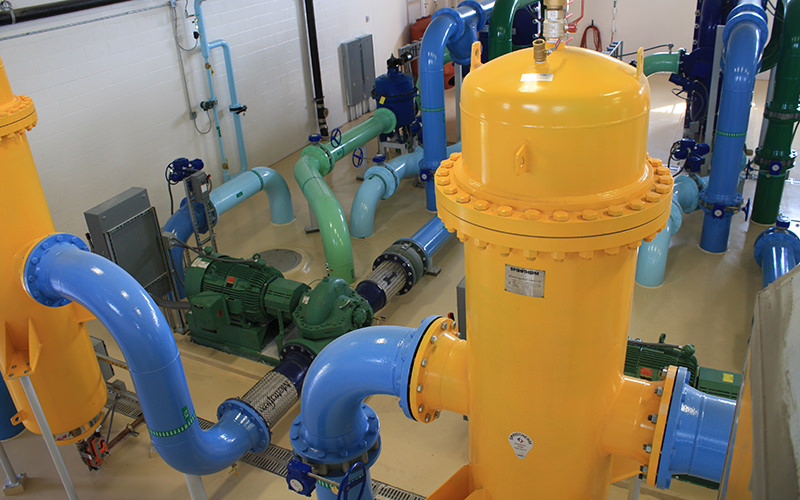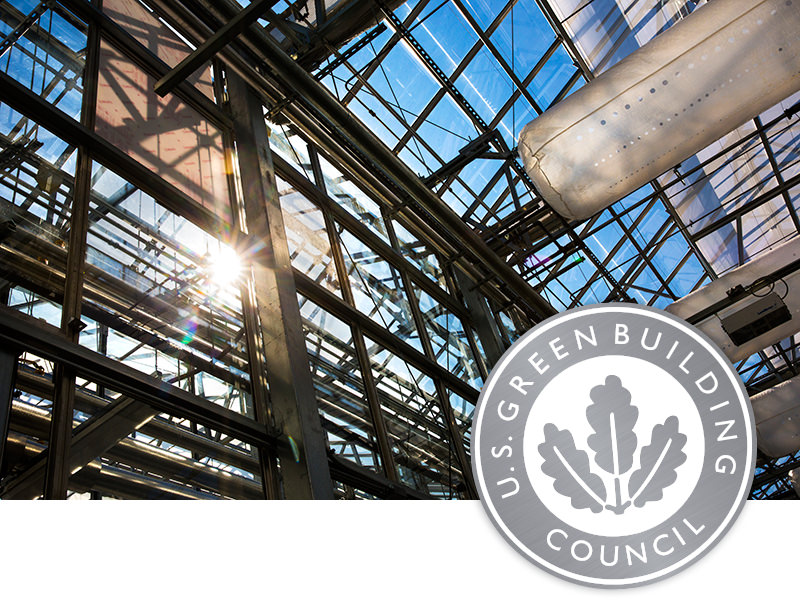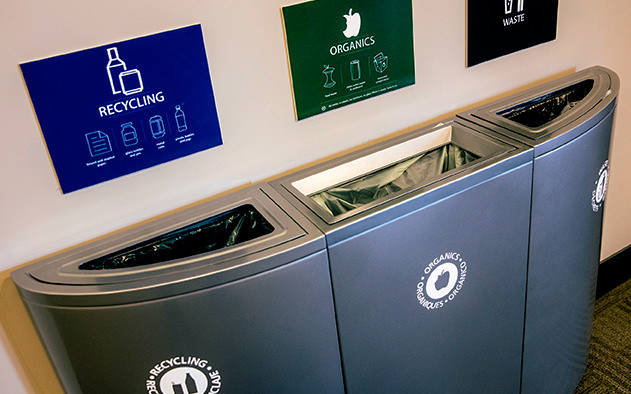Alternative Energy
While building Nebraska Innovation Campus (NIC), many aspects were taken into consideration including employing the newest and most creative technologies to heat and cool the buildings. The Centralized Renewable Energy System (CRES) uses reclaimed, non-drinkable water from the nearby Theresa Street wastewater treatment plant to heat and cool up to 1.8 million square feet of offices and labs on NIC. This award winning closed-loop system transfers thermal energy in underground piping to the entire campus. The investment in this source of alternative energy will ensure that NIC buildings operate 30% more efficiently than ones with standard equipment and will lower the risks associated with fluctuating commodity prices. This system is even more efficient than a geothermal system because of the consistent water temperatures provided by the wastewater treatment facility.

Green Buildings
NIC buildings don't just reflect values of innovation and collaboration – they inspire them. NIC buildings are built to LEED Silver standards and enable the campus to minimize its impact on the environment while maximizing the utility and wellbeing of users. Abundant natural lighting and extensive measures to ensure high indoor air quality translate into tangible benefits to the health and productivity of occupants. Through innovative spaces, we strive to catalyze employee satisfaction and retention, and empower NIC partners to more effectively reach their goals.

Catalyzing Research
Moving toward social, economic and environmental sustainability presents a multitude of challenges for communities in Nebraska and beyond. NIC is working to be a space that catalyzes a variety of research in sustainability to address some of those challenges. Already, we are facilitating relationships between private sector companies and the University of Nebraska's leading-edge researchers from the Nebraska Center for Energy Sciences Research and the Robert B. Daugherty Water for Food Institute. With access to experts in the spheres of food, water and energy, NIC is well-positioned to develop new partnerships in sustainability research.

Zero Waste
NIC is committed to becoming a zero waste campus. The zero waste concept looks to change the way the campus thinks about waste, and transcends the design, production and consumption processes. By reengineering systems in ways that reduce inefficiency, emulate sustainable natural cycles and empower the local community, NIC's zero waste efforts promote environmental sustainability, economic opportunity and social equity. NIC's zero waste strategy incorporates robust recycling and composting programs, sustainable purchasing policies, and fosters collaboration with our partners.


